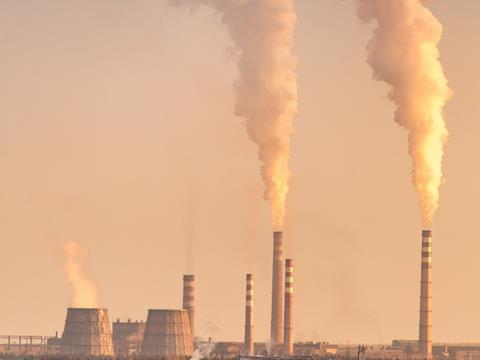
CCEP Ventures – the innovation investment arm of Coca-Cola Europacific Partners – has partnered with research groups at Universitat Rovira i Virgili and the University of Twente to fund their research into the use of carbon capture technology to convert captured emissions into packaging materials and more.
Carbon capture involves the capture of carbon dioxide generated from an emission source, or even that which is already present in the atmosphere, and channelling it into the production of goods. In the context of packaging, CCEP claims that the process can become fully circular, as the final product can be recycled.
It is hoped that the R&D projects resulting from CCEP’s funding will develop new carbon capture technology that can be applied on-site. Other applications for the captured CO2 are hoped to include synthetic fuels to power CCEP’s factories, and sugar to carbonate its soft drinks.
The company also hopes that this collaboration will carry it one step closer to its goal of reaching net zero by 2040, and that further partnership opportunities will fulfil its aim of reducing greenhouse gas emissions across its value chain by 30% by 2030.
“We are challenging ourselves to think differently about CO2, which is so often only seen as a dangerous waste product,” said Craig Twyford, head of CCEP Ventures. “What if we could not only take CO2 out of the atmosphere, where we know it’s causing harm, but also turn it into something useful? Then we could start thinking of it as a valuable resource.
“Funding these projects is an exciting opportunity for us to be at the forefront of scientific discovery and innovation. We think it has the potential not only to significantly impact our operations, but it could also be rolled out across different industries to reduce GHG emissions and make better use of the carbon in our atmosphere.”
“We are delighted to be working with CCEP Ventures and to play a role in reducing the environmental impacts of manufacturing through emerging technology,” continued Dr. Fèlix Llovell and Dr. Alberto Puga, representatives from the Universitat Rovira i Virgili. “Our partnership with CCEPV will accelerate the development of important technical solutions to capture carbon from the air and generate usable materials from CO2.”
“As the need to improve the health of the environment and our planet becomes more pronounced, it is vitally important that businesses globally take a proactive approach to developing and funding new-age solutions to the climate problem,” added Prof. Dr. Ir. Gerrit Brem and Dr. Abhishek Singh, representatives from the University of Twente. “We’re greatly encouraged by CCEPV’s action in this space and are pleased to be working with them to realise their vision.”
Dr. Hydra Rodrigues, technology analyst at IDTechEx, spoke to Packaging Europe last year about the ways in which captured CO2 could be used as feedstock in the production of polymers, and the potential challenges and barriers in the pursuit of an industrialised process.
Other collaborations also saw Cola-Cola Europacific Partners work towards the reduction of carbon emissions in its supply chain, from its partnership with Rabobank to develop a new supply chain business model to its work with University of California, Berkeley to convert emissions into sugar and, eventually, packaging feedstock.














No comments yet